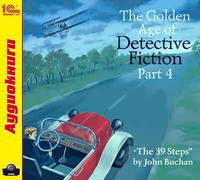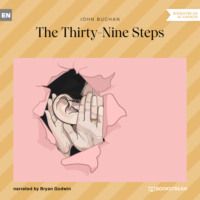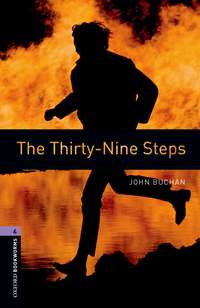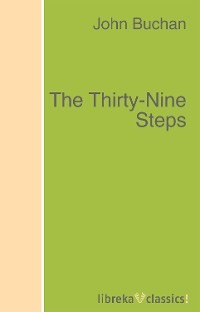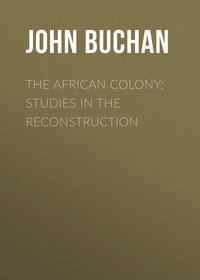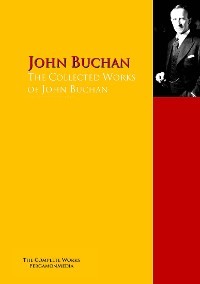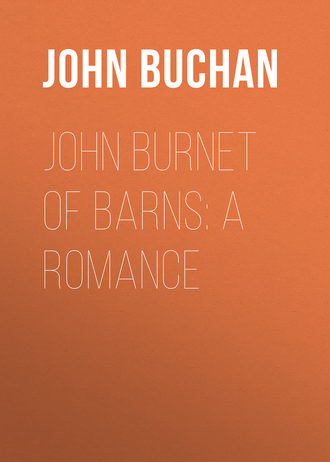 полная версия
полная версияJohn Burnet of Barns: A Romance
As I left the place there was a cool, grey haze over all the gardens and towers – mellow and soft and lucid. But to the north, where lay the sea, there was a broken sky, blue, with fitful clouds passing athwart. It seemed, as it were, the emblem of my life – the tranquil and the unsettled. Yet in the broken sky there was a promise of sunshine and brilliance, which was not in the even grey; and this heartened me.
So at four that evening we mounted horse and rode forth by the way we had come, and ere the hour of eleven were on the wharf at Rotterdam, sniffing the distant smell of the sea.
CHAPTER IX
AN ACCOUNT OF MY HOME-COMING
Captain Steen met me on deck and greeted me heartily. "There's a brisk wind from the sou'-east," said he, "which should speed us well;" and soon, amid creaking of cordage and flapping of sails, we dropped down the estuary and set our face sea-wards. There was something of a squall of rain which beat on us till we were fairly beyond the Dutch coast; but after that it drew down to the west, and when I awoke the next morn, the sky was blue and sunshiny, and the soft south wind whistled gaily in the rigging.
Of my voyage home I do not purpose to tell at length. On it I met with none of the mishaps which I had encountered before, so the brandy was wholly needless. Indeed, I found the greatest pleasure in the journey; the motion of the ship gave me delight; and it was fine to watch the great, heaving deserts before and behind, when the sun beat on them at mid-day, or lay along them in lines of gold and crimson at the darkening. The captain I found a friendly, talkative man, and from him I had much news of the state of the land whither I was returning. Nor was it of such a sort as to elate me, for it seemed as if, in the short time I had been away, things had taken many steps to the devil. The truth of the matter, I fancy, was that when I left Tweeddale I was little more than a boy, with a boy's interests, but that now I had grown to some measure of manhood and serious reflection.
But my time during the days of our sailing was in the main taken up with thoughts of Marjory. The word I had got still rankled in my mind, and I puzzled my brain with a thousand guesses as to its purport. But as the hours passed this thought grew less vexatious, for was not I on my way home, to see my love once more, to help her in perplexity, and, by God's help, to leave her side never again? So anxiety was changed by degrees to delight at the expectation of meeting her, and, as I leaned over the vessel's edge and looked at the foam curling back from the prow, I had many pleasing images in my fancy. I would soon be in Tweeddale again, and have Scrape and Dollar Law and Caerdon before my eyes, and hear the sing-song of Tweed running through the meadows. I thought of golden afternoons in the woods of Dawyck, or the holms of Lyne, of how the yellow light used to make the pools glow, and the humming of bees was mingled with the cry of snipe and the song of linnet. As I walked the deck there were many pictures of like nature before me. I thought of the winter expeditions at Barns, when I went out in the early morning to the snow-clad hills with my gun, with Jean Morran's dinner of cakes and beef tightly packed in my pocket; and how I was wont to come in at the evening, numb and frozen, with maybe a dozen white hares and duck over my shoulder, to the great fire-lit hall and supper. Every thought of home made it doubly dear to me. And more than all else, there was my lady awaiting me, looking for the sight of my horse's head at the long avenue of Dawyck. An old catch, which wandering packmen used to sing, and which they called "The North Countree," ran in my head; and, as I looked over the vessel's bowsprit, I found myself humming:
"There's an eye that ever weeps, and a fair face will be fainWhen I ride through Annan Water wi' my bonny bands again."Then I fell to thinking of the house of Barns, and of the many things which I should do were I home. There was much need of change in the rooms, which had scarce been touched for years. Also I figured to myself the study I should make, and the books which were to fill it. Then out of doors there was need of planting on the hillsides and thinning in the haughlands; and I swore I should have a new cauld made in Tweed, above the island, for the sake of the fishing. All this and more should I do "when I rode through Annan Water wi' my bonny bands again."
We left Rotterdam on the evening of one day, and sailed throughout the day following; and since we had a fair wind and a stout ship, about noon on the next we rounded the Bass and entered the Forth. I was filled with great gladness to see my native land once more, and as for my servant, I could scarce prevail upon him to keep from flinging his hat into the sea or climbing to the masthead in the excess of his delight. The blue Lomonds of Fife, the long ridge of the Lammermoors, and the great battlements of the Pentlands were to me like honey in the mouth, so long had I been used to flat lands. And beyond them I saw the line of the Moorfoots, ending in Dundreich, which is a hill not five miles from the town of Peebles.
About three of the clock we entered Leith Roads and awaited the signals for admission. "The Seamaw lies at the wast harbour for usual," said the captain, "but there's something wrong thereaways the day, so we maun e'en run into the east." So, soon amid a throng of barques at anchor and small boats moving to and fro among them, we steered our course, and in a very little lay against the grey, sea-washed walls of the east quay. There we landed, after bidding farewell to the captain; and as my feet touched the well-worn cobblestones, and I smelt the smell of tar and herrings, I knew my own land. The broad twang of the fishermen, the shrill yatter of the fishwives, the look of the black, red-tiled houses, and the spires of the kirks – all was so Scots that it went straight to my heart, and it was with a cheerful spirit that, followed by my servant, I made for the inn of The Three Herrings, where I purposed to sleep the night ere I rode to Tweeddale on the morrow. So much for man's devices: this was to be to me the last day of quiet life for many months. But as I briskly strode along the Harbour Walk, little I foresaw of the dangers and troubles which awaited my coming.
BOOK III – THE HILLMEN
CHAPTER I
THE PIER O' LEITH
When I came to the door of The Three Herrings, I presented an imposing sight, with Nicol at my side and two sailors at my back with my baggage. The landlord, who was taking the afternoon air against the wall, made me a civil greeting, and placed his hostel at my service, opining that I was a stranger of consequence just come from abroad. So bidding my servant settle with the men, I followed my host upstairs to a room where a fire was burning and some refreshment laid on the table. From below came the clink of glasses and the snatch of a song. The sun poured in at the open window; a girl in the street was singing the "Fishwives' Rant"; and all the world seemed in gay spirits.
An excellent supper was brought, on which I fell like a hawk, for the sea air had sharpened my hunger, and landward dishes are better than the meat of a ship. I bade the landlord let no one enter save my servant, for that I desired to be alone. Then I fell to summing up my monies, and various calculations of a like nature, which it was proper to make on my return; and, finally, I pushed away my chair from the table, and, filling my glass, gave myself up to pleasing fancies.
It was near the darkening, as I saw from the window which opened on the back yard, and which at that hour was filled with the red glow of sunset. The chimneys on the tall houses rose like spikes into the still air, and somewhere in the place a bell was ringing for I know not what. Below in the room I heard many mingled voices, and a high imperious tone as of one accustomed to authority. I guessed that some body of soldiers was filling the tap-room. I was in a fine, contented frame of mind, well pleased with the present, and looking cheerfully forward to the morrow. By and by I began to wish for Nicol's presence and to wonder at his long absence.
I was just approaching a state of irritation with my servant when the door was softly opened and the defaulter appeared. His face struck me with surprise, for, whereas for usual it was merry and careless, it was now filled with grave concernment. He closed the latch quietly behind him, and then slipped the bolt, locked the door, and pocketed the key.
I stared in silent amazement.
"If it comes to the warst," he said, "we can fecht for 't."
"What fooling is this?" said I. "Tell me at once, and have done with it.
"It's nae fooling, Laird, as ye'll be finding oot. Sit still, for I've a long story to tell ye." And, having first listened for a noise from below, he began his news, while I listened in much trepidation.
"I paid the men as ye tellt me, and syne I gaed doun to my cousin's shop i' the Rope-Walk, just to speir if they were a' weel; and then I cam' back to the inn, thinking to get a bit quiet gless a' by mysel' i' the chimley corner. But when I gaed into the room I fand it filled wi' muckle sodger folk, drinking and sweering like deevils. And the first man I clappit eyes on was yin Jock Cadder, whae was yince a freend o' mine, so sitting doun aside Jock, I fell into crack.
"Weel, I hadna been there mony meenutes when I hears a loud voice frae the ither end calling for a song. And anither voice answered, no sae loud, but weak and thin. I jumpit up in my seat, for the voices were weel kenned to me. And there I saw at the ither end o' the table your wanchancy cousin the Captain, sitting glowrin' wi' his muckle een and playing wi' his gless. And aside him was nae ither than Maister Michael Veitch, him o' Dawyck, but no like what he used to be, but a' red aboot the een, and fosy aboot the face, like a man that's ower fond o' the bottle."
My heart leaped with a sudden terror at the news. What on earth was Marjory's brother doing on the Pier o' Leith in the company of my most bitter foe? A great sense of coming ill hung over me as Nicol went on.
"Weel, I was astonished; and speaking quiet in Jock Cadder's ear, I asks him what it meant, and what the twae were daein' here. And this is what I heard from him, for Jock never jaloused I had aught to dae wi' ye, but thocht I was aye the same auld hide-i'-the-heather I had been afore. 'When our Captain cam back frae furrin pairts,' says he, 'he gangs off to Tweeddale, your ain countryside, for it seems there's a lassie there he's awfu' fond o'. She's the dochter o' auld Veitch o' Dawyck, rich, and, by a' accoont, terrible bonny. But she's trysted to the Captain's cousin, Burnet o' Barns, whae has been in Holland for mair nor a year. It's weel kenned that Maister Gilbert Burnet, when he gets a ploy intil his heid, never stops till he wins his purpose; so he sets himsel' to mak love to the lass. And he couldna dae this unless he were weel in favour wi' her brother Michael, so he begins by winnin' him ower to his side. Noo Michael Veitch (that's him up there) was aye uncommon fond o' wine and yill o' a' description, so the Captain leads him on and on by drinkin' wi' him at a' times, till noo the man is fair helpless. But this wasna a', for if John Burnet cam hame and fund this gaun on, he wad mak a rare camsteery, and, by a' accoont, he's a stieve dour chiel. So Maister Gilbert, whae's high in favour wi' the Privy Council, gangs and tells them o' some daeings o' his cousin's abroad, o' some hobnobbing and plotting wi' rebels and outlawed folk, and sending treasonable letters to this land under his name; so he gets a warrant for the lad's arrest as sune as he sets foot on Scots earth – and a'body kens what that means, that he'll no be troubled muckle mair wi' his cousin in this warld. That's the reason we're doun here the day. We've had word that he's coming ower i' the Seamaw, whilk lies at the wast harbour. We've been sending doun word thae last 'oors, but she's no in there yet, and 'ill no be noo till the morn.'
"That was what Jock Cadder tellt me, and I warrant I was in a fine fricht. It was clear the Captain had nae mind o' me, for he lookit twae or three times my way, and never changed his face. I slips oot the door wi'oot being noticed, and cam up here wi' a' speed to tell ye the tale. So, Laird, ye're in a close hole, and there's just some auld wooden planking atween you and the Tolbooth."
I cared little for the Tolbooth or anything else. One thing, and one alone, claimed all my attention. My whole soul was filled with a terror of anxiety, of mad jealousy, and desperate fear for my lady's sake. This was the cause of the letter, this the cause of her silence. I ground my teeth in helpless fury, and could have found it in my heart to rush down to Gilbert and choke the life in his throat. I was so appalled by the monstrousness of the thing that I could scarce think. My own danger was nothing, but that Marjory should be the sport of ruffians – the thing overpowered me. It was too fearsome, too monstrous.
One thing was clear – that I must go to her at once. If Gilbert Burnet was on the Pier o' Leith, Marjory Veitch at Dawyck would be quit of his company. Were I once there I could see her, and, perchance, save her. I cannot write down my full trepidation. My fingers clutched at my coat, and I could scarce keep my teeth from chattering. It was no fright that did it, but an awful sickening anxiety preying on my vitals. But with an effort I choked down my unrest, and centred all my thoughts on the present. Were I only in Tweeddale I might yet find a way out of the trouble. But woe's me for the change in my prospects! I had come home thinking in the pride of my heart to be welcomed by all and to cut a great figure in my own countryside; and lo, I found myself an outlawed man, whose love was in peril, and whose own craig was none so sure. The sudden reversion all but turned my wits.
I walked to the window and looked down. The night was now dark, but below a glimmer from the taproom window lit the ground. It was a court paved with cobblestones from the beach, where stood one or two waggons, and at one end of which were the doors of a stable. Beyond that a sloping roof led to a high wall, at the back of which I guessed was a little wynd. Once I were there I might find my way through the back parts of Leith to the country, and borrow a horse and ride to Tweeddale. But all was hazardous and uncertain, and it seemed as if my chance of safety was small indeed. I could but try, and if I must perish, why then so it was fated to be.
"Nicol," said I, "bide here the night to keep off suspicion, and come on as soon as you can, for the days have come when I shall have much need of you."
"There's but ae thing to be dune, to tak to the hills, and if ye gang onywhere from the Cheviots to the Kells, Nicol Plenderleith 'ill be wi' ye, and ye need hae nae fear. I ken the hills as weel as auld Sawtan their maister himsel'. I'll e'en bide here, and if ye ever win to Dawyck, I'll no be lang ahint ye. Oh, if I could only gang wi' ye! But, by God, if ye suffer aught, there'll be some o' His Majesty's dragoons that'll dree their wierd." My servant spoke fiercely, and I was much affected at the tenderness for me which it betokened.
"If I never see you again, Nicol, you'll watch over Marjory? Swear, man, swear by all that's sacred that you'll do my bidding."
"I swear by the Lord God Almighty that if ye come to ony scaith, I'll send the man that did it to Muckle Hell, and I'll see that nae ill comes ower Mistress Marjory. Keep an easy mind, Laird; I'll be as guid as my word."
Without more ado I opened the window and looked out. My servant's talk of taking to the hills seemed an over-soon recourse to desperate remedies. Could I but remove my sweetheart from the clutches of my rival, I trusted to prove my innocence and clear myself in the sight of all. So my thoughts were less despairing than Nicol's, and I embarked on my enterprise with good heart. I saw the ground like a pit of darkness lie stark beneath me. Very carefully I dropped, and, falling on my feet on the cobblestones, made such a clangour beneath the very taproom window that I thought the soldiers would have been out to grip me. As it was, I heard men rise and come to the window; and, crouching far into the lee of the sill, I heard them talk with one another. "Tut, tut, Jock," I heard one say, "it is nothing but a drunken cadger come to seek his horse. Let be and sit down again." When all was quiet I stole softly over to the other side, that I might scale the wall and reach the wynd, for I dare not pass through the open close into the Harbour Walk lest I should be spied and questioned by the soldiers who were ever lounging about.
But some fortunate impulse led me to open the stable door. A feebly-burning lantern hung on a peg, and there came from the stalls the noise of horses champing corn. They were the raw-boned hacks of the soldiers, sorry beasts, for the increase of the military in the land had led to a dearth of horses. But there was one noble animal at the right, slim of leg and deep of chest, with a head as shapely as a maiden's. I rushed hotly forward, for at the first glance I had known it for my own mare Maisie, the best in all Tweeddale. A fine anger took me again to think that my cousin had taken my steed for his own mount. I had sent it back to Barns, and, forsooth, he must have taken it thence in spite of the vigilant Tam Todd. But I was also glad, for I knew that once I had Maisie forth of the yard, and were on her back, and she on the highway, no animal ever foaled could come up with her. So I gave up all my designs on the wall, and fell to thinking how best I could get into the Harbour Walk.
There was but one way, and it was only a chance. But for me it was neck or nothing, my love or a tow in the Grassmarket; so I tossed my plumed hat, my sword, and my embroidered coat on a heap of hay, tore open my shirt at the neck, put a piece of straw between my lips, and soon was a very tolerable presentment of an ostler or farrier of some kind. So taking Maisie's bridle – and at my touch she thrilled so that I saw she had not forgotten me – I led her boldly across the court, straddling in my walk to counterfeit some fellow whose work was with horses. My heart beat wildly as I went below the archway and confronted the knots of soldiers, who, sitting on a low bench or leaning against the wall, were engaged in loud talk and wrangling.
"Ho, you, fellow, where are you going with the Captain's horse?" cried one. I knew by his tone that the man was a Southron, so I had little fear of detection.
"I'm gaun to tak it to the smiddy," said I, in my broadest speech. "The Captain sent doun word to my maister, Robin Rattle, in the Flesh Wynd, that the beast was to be ta'en doun and shod new, for she was gaun far the neist day. So I cam up to bring it."
The man looked satisfied, but a question suggested itself to him.
"How knew you the one, if you were never here before?"
"It was the best beast i' the place," I said simply; and this so put his mind at rest that, with a gratuitous curse, he turned round, and I was suffered to go on unmolested.
Down the Harbour Walk I led her, for I dared not mount lest some stray trooper recognised the mare and sought to interrogate me. Very quietly and circumspectly I went, imitating a stableman by my walk and carriage as I best knew how, till in ten minutes I came to the end, and, turning up the Fisherrow, came into Leith Walk and the borders of Edinburgh.
CHAPTER II
HOW I RODE TO THE SOUTH
The night was full of wind, light spring airs, which rustled and whistled down every street and brought a promise of the hills and the green country. The stars winked and sparkled above me, but I had no mind to them or aught else save a grey house in a wood, and a girl sitting there with a heavy heart. 'Faith, my own was heavy enough as I led Maisie through the West Vennel, shunning all but the darkest streets, for I knew not when I might be challenged and recognised, losing my way often, but nearing always to the outskirts of the town. Children brawled on the pavement, lights twinkled from window and doorway, the smell of supper came out of chink and cranny. But such things were not for me, and soon I was past all, and near the hamlet of Liberton and the highway to Tweeddale.
Now there was safety for me to mount, and it was blessed to feel the life between my knees and the touch of my mare's neck. By good luck I had found her saddled and bridled, as if some careless, rascally groom had left her untouched since her arrival. But I would have cared little had there been no equipment save a bridle-rope. I could guide a horse on the darkest night by the sway of my body, and it was not for nothing that I had scrambled bareback about the hills of Barns. Maisie took the road with long, supple strides, as light and graceful as a bird. The big mass of Pentland loomed black before me; then in a little it fell over to the right as we advanced on our way. The little wayside cottages went past like so many beehives; through hamlet and village we clattered, waking the echoes of the place, but tarrying not a moment, for the mare was mettlesome, and the rider had the best cause in the world for his speed. Now this errand which seems so light, was, in truth, the hardest and most perilous that could be found. For you are to remember that I was a man proscribed and all but outlawed, that any chance wayfarer might arrest me; and since in those troubled times any rider was suspected, what was a man to say if he saw one dressed in gentleman's apparel, riding a blood horse, coatless and hatless? Then, more, all the way to Peebles lay through dangerous land, for it was the road to the southwest and the Whigs of Galloway, and, since the Pentland Rising, that part had been none of the quietest. Also it was my own country, where I was a well-kenned man, known to near everyone, so what might have been my safety in other times, was my danger in these. This, too, was the road which my cousin Gilbert had travelled from Barns, and well watched it was like to be if Gilbert had aught to do with the matter. But the motion of my mare was so free, the air so fine, the night so fair, and my own heart so passionate, that I declare I had forgotten all about danger, and would have ridden down the High Street of Edinburgh, if need had been, in my great absence of mind.
I was recalled to my senses by a sudden warning. A man on horseback sprang out from the shelter of a plantation, and gripped my bridle. I saw by the starlight the gleam of a pistol-barrel in his hand.
"Stop, man, stop! there's nae sic great hurry. You and me 'ill hae some words. What hae ye in your pouches?"
Now I was unarmed, and the footpad before me was a man of considerable stature and girth. I had some remnants of sense left in me, and I foresaw that if I closed with him, besides the possibility of getting a bullet in my heart, the contest would take much time, and would have an uncertain ending. I was fairly at my wit's end what with hurry and vexation, when the thought struck me that the law and military which I dreaded, were also the terror of such men as this. I made up my mind to throw myself on his mercy. Forbye, being a south-country man, the odds were great that my name would be known to him.
"I have no money," I said, "for I came off this night hot-speed, with a regiment of dragoons waiting behind me. I am the Laird of Barns, in Tweeddale, and this day an outlaw and a masterless man. So I pray you not to detain me, for there's nothing on me worth the picking. I have not a groat of silver, and, as you see, I ride in my shirt."
"Are ye the Laird o' Barns?" said the man, staring. "Man, I never kent it or I wadna hae been sae unceevil as to stop ye. Be sure that I'm wi' ye, and sae are a' guid fellows that likena thae langnebbit dragoons and thae meddlesome brocks o' lawyers in Embro. Gang your ways for me. But stop, ye've nae airms. This 'ill never dae. Tak yin o' my pistols, for I'll never miss it. And see, gin ye tak my advice and gin ye're gaun to Barns, gang off the Peebles road at Leadburn, and haud doun by the Brochtoun and Newlands ways, for a' the way atween Leadburn and Peebles is hotchin' wi' sodgers and what-ye-may-ca'-thems. Guid e'en to ye, and a safe journey." The man rode off and almost instantly was lost to my sight; but his act gave me assurance that there was still some good left in the world, though in the most unlikely places.


